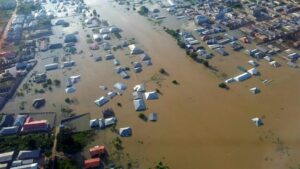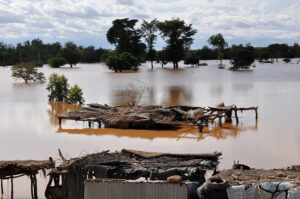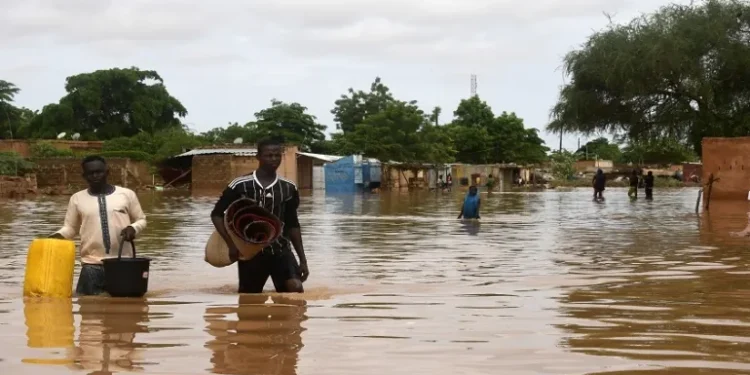
Authorities in Niger say at least 47 people have been killed and more than 56,000 displaced following weeks of heavy rainfall that triggered widespread flooding.
According to the General Directorate of Civil Protection, the floods have hit 7,754 households across 339 villages and neighbourhoods.
The agency reported that 30 people died after their homes collapsed, while another 17 drowned. At least 70 people were injured, and nearly 300 head of cattle perished in the disaster.
Officials say the flooding has also destroyed homes and infrastructure, worsening the plight of thousands of already vulnerable families.
In response, the National Committee for Flood Prevention has begun distributing food aid to nearly 4,000 households, while the government has allocated $21.3 million to support relief and recovery efforts.

Flooding is one of the most frequent and devastating disasters linked to climate change, and Africa bears a disproportionate burden. The continent has seen a rise in extreme weather events — including deadly heatwaves, cyclones, droughts, and intense rains.
In Niger alone, last year’s heavy rains affected nearly 1.5 million people across all eight regions, underscoring the growing threat.
With more rain expected in the weeks ahead, authorities warn that the risk of further flooding remains high.


















